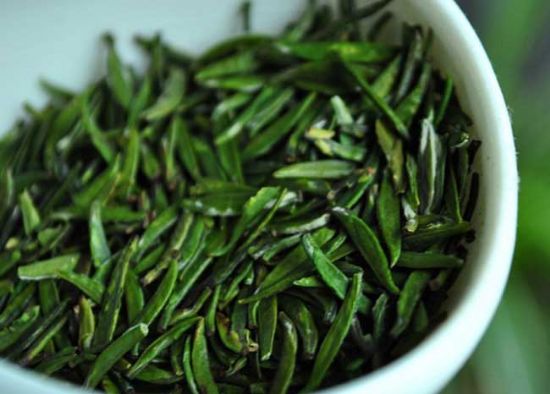Shizi Mosuo Tea is a local breed formed by long-term cultivation and cultivation of local tea farmers in Shiqian County, Guizhou Province, China. The mother tree belongs to the ancient tea tree series; it is one of China's best varieties of tea trees, and its resistance, adaptability, yield, and quality Foreign varieties are better than a few chips, and the chestnuts are long-lasting, full-bodied, green and bright, and the soups are bright yellow and green, and the bottom is fresh and well-balanced. After inspection by the Ministry of Agriculture, the health indicators, heavy metals and pesticide residues of the tea pathogens are all lower than those of the European Union and Japan. They are rich in aromatic substances and contain beneficial substances such as zinc, selenium and potassium. The tea originated from Shiqi and was introduced to Longdong, Oubei, and Qiandongnan. It is a strategic variety of the tea industry in Guizhou. It was once hailed as “the gold is not changed†and “the brand in the brandâ€.
There is a legend about Moss Tea. In the past, there was a cave in the high mountains of Xinhua in Wude Town. There are two masters of spiritual practice who live in the cave. If the villagers lack food and clothing, they can go to the cave for help. If there is a disaster disease, drinking water from the cave can also eliminate the disease. . Therefore, the surrounding villagers came here to pray for peace and happiness.
One day, an old man broke out of illness and his family supported the cave to seek treatment. This time, the water source dries up. The pool of fallen leaves is deposited. The old man can drink water and drink. In desperation, he chews and swallows the fallen leaves in the pool. Aftertaste is sweet, the taste is very good, the liquid drops, feels refreshed, and the pain is completely removed, so the seeds on the deciduous tree are sown and sown. As the news spread, people rushed to the cave to pick up trees from the clean water ponds. The trees were scattered all over the country in a few years. The trees were called by the locals as "moss tea trees."
There is plenty of rainfall in Shi Wei, with an average annual rainfall of 1150 mm. Due to the high rainfall and high humidity, the yield and quality of this pure land tea are excellent. As one of the country’s ancient tea regions, Moss Tea has always been a wonderful gift among all varieties. In spite of being "socially literate", there are still some written records. In the Han Dynasty, Yang Xiong had "Dialects", Tang Yu Lu Yu's "Tea Classics", Northern Song Dynasty Music History "Tai Ping Yu Yu Ji Jiang Nan Dao", Ming Dynasty "Yue Ji", Qing Dynasty "Continued Shuo Shu", "Guizhou Tong Zhi" and modern tea The historical books and Fang Zhi from the writings of Sheng Wu Jue Nong all recorded and described the historical origins and development of Shi Dai tea from different aspects. According to the 1940 "Yang Daen's Local Textbook Series," the report states: "In the twenty-fifth year of the Republic of China, Guiyang opened a trade fair in the province, and Ishigaki tea won a high quality medal." According to the earlier "Guizhou Daily", "The beauty of tea flavor in Guizhou is based on stone. As a giant engine, in recent years, the chairman of the chamber of commerce has improved the decoration, and Ishigaki tea has become popular in the whole country. "All these things are remembering the fragrance and appearance of the Shicha Moss Tea."
After inspection by the Ministry of Agriculture, the health indicators, heavy metals and pesticide residues of the tea pathogens are all lower than those of the European Union and Japan. They are rich in aromatic substances and contain beneficial substances such as zinc, selenium and potassium. The tea originated from Shiqi and was introduced to Longdong, Oubei, and Qiandongnan. It is a strategic variety of tea industry in Guizhou. In 2009, it was protected by national geographical indication products. Its products have won more than 10 national awards. Has been hailed as "gold is not changed" and "brand in the brand."
3. Safety requirements: Product safety indicators must meet the relevant national regulations for similar products.

We're Professional Supplier Extract Powder manufacturers and suppliers in China specialized in providing high-quality products at low price. We warmly welcome you to buy or wholesale bulk Supplier Extract Powder for sale here from our factory. For a free sample, contact us now.
Supplier Extract Powder,Supplier Extract ,Supplier Powder Manufacturer in China
Shaanxi Kang New Pharmaceutical co., Ltd. , https://www.bio-pharmacies.com